Intercultural Crosstalk
Work and Activities That Connect Japan and Their Home Country -About Work and Activities-
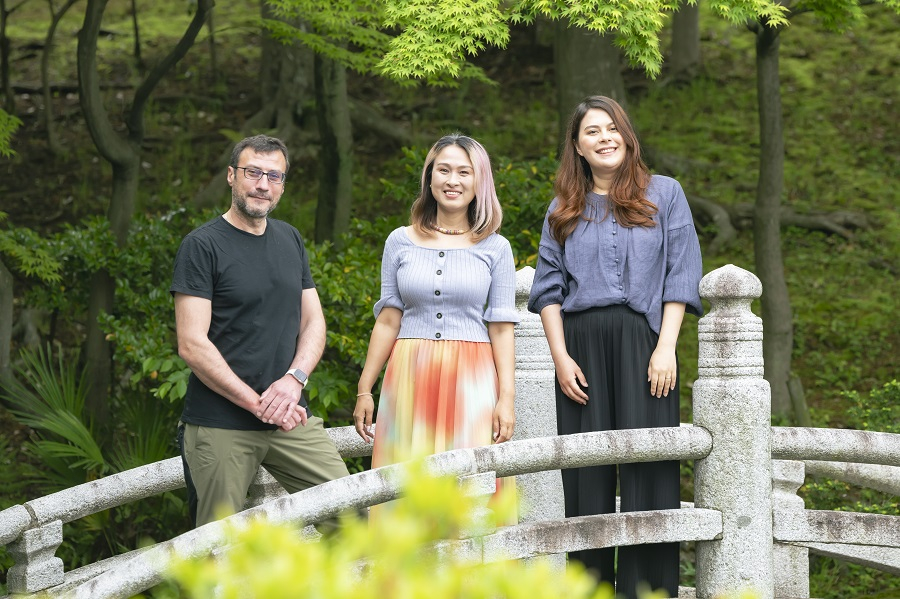
See their profiles here
Click for "1st Round" Here
Round 2: About Work and Activities
We are pleased to present a 3 part series of round-table discussions on "work and activities that connect their home countries with Japan".
In this second session, we will be discussing their work and activities. What kind of reactions do their family and friends have to their work and activities?
They also talked about how their own lives and the environment around them had changed as a result of continuing with their work and activities.
How Long Have You Been Doing Your Current Job or Activities?
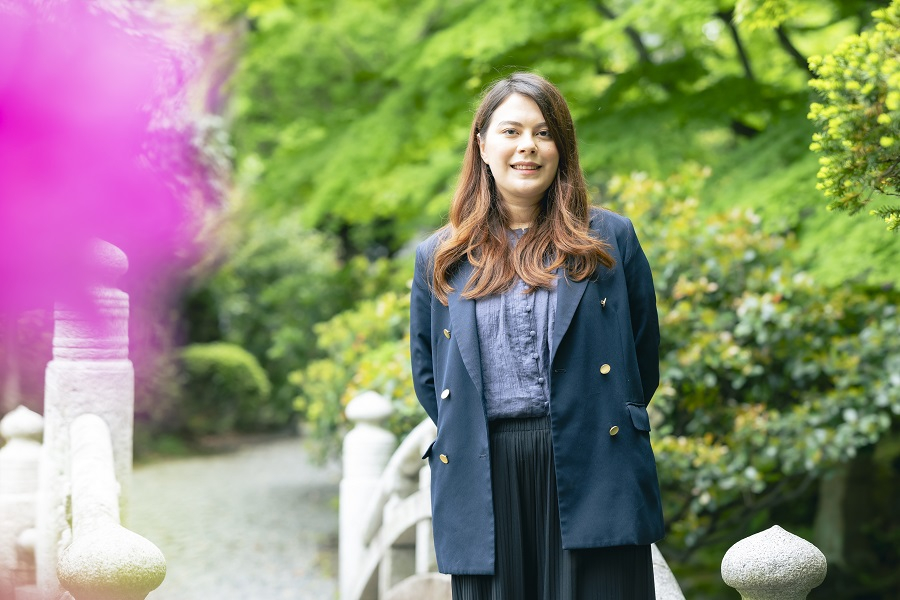
I have continued to work in music since coming to Japan. Of course I also work in other fields, but for the past 17 years since coming to Japan, I have been working regularly in music.
I started YouTube about 13 years ago. I upload to Facebook almost every day. If you don't update it every day or reply to comments, your engagement will go down. When I get work as an influencer, they ask me about my engagement rather than the number of followers. In my case, it's usually over 500 likes, and sometimes it goes up to 3,000 to 6,000 likes.
That must be hard. It sounds like a job.
That's right. I think it's like work.
I have been teaching Japanese as a volunteer for 5 years. I graduated from graduate school and have been working as a Japanese teacher for 3 years. I have only been doing this for a short time as a job. I am going to quit for a while because I have a child, but I would like to teach Japanese while raising my child.
What language will you speak with your child?
I'm having a hard time deciding. My husband is also of Japanese descent, and his native language is Portuguese, but I think I'll probably speak Japanese with my child.
When my husband and I talk together, we speak Portuguese, but I'm forgetting Portuguese, so it's a good balance. We talk while mixing the two languages.
When I first came to Japan, my husband and I spoke English. After the birth of our children, me and the children spoke Thai, my husband and the children spoke Japanese, and my husband and I spoke in English.
As the kids got older, my husband started to understand Thai, and I started to understand Japanese by studying it. These days, I speak Thai and my husband speaks Japanese to them. English is no longer used. The kids understand both Thai and Japanese.
At first, I tried speaking Bulgarian to my children, and they learned a little. Since we speak Japanese all day, I think it would be difficult for them to learn Bulgarian at the same speed as Japanese.
My eldest daughter, who is in high school, can speak Thai, but her level is about that of a first-year elementary school student. She can't read or write. My younger son can hear Thai, but he speaks it less than my eldest daughter. Even when I speak to him in Thai, he replies in Japanese, so sometimes I tell him, "If you don't speak Thai, you can't have your snack."。
How Do Your Family and the People Around You Feel About Your Current Job or Activities?
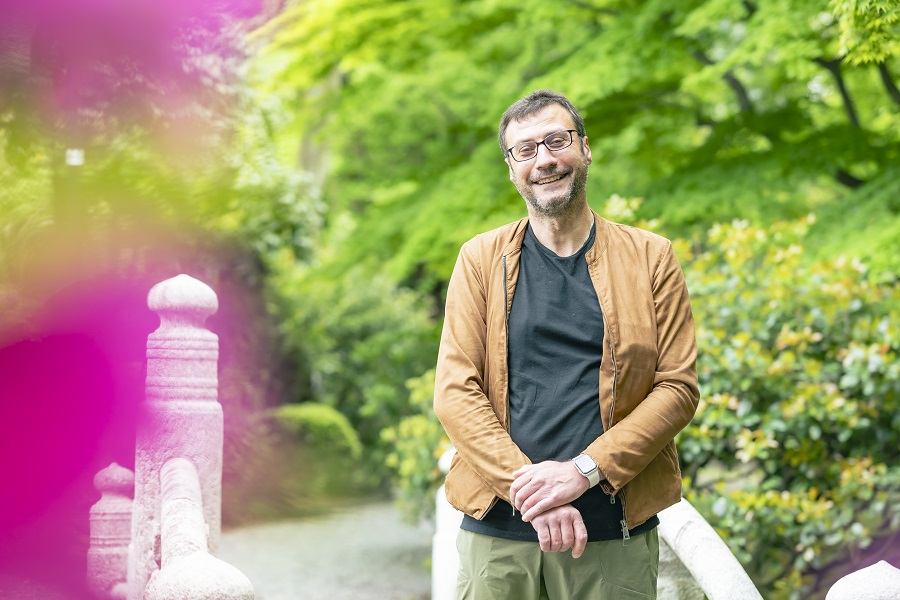
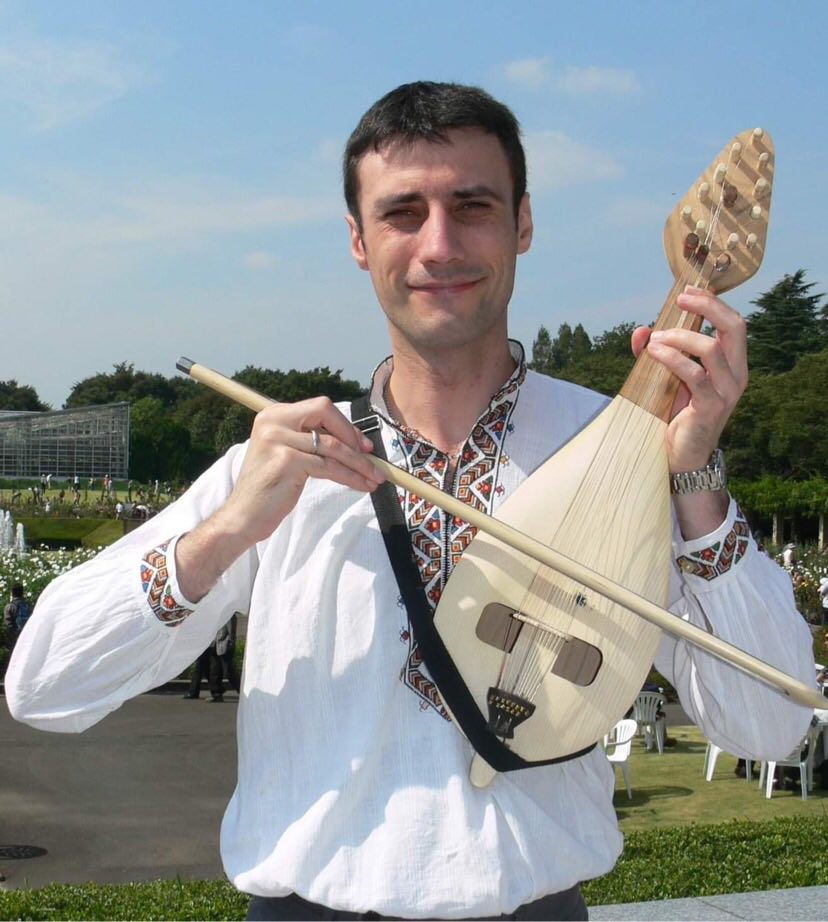
When I tell my family and relatives that I teach Japanese to foreigners, they don't seem to have a very clear image of what I do. My family often asks me why I teach Japanese and not Portuguese. Brazil has a lot of immigrants, but there is no system in place to teach Portuguese to foreigners. Immersion education means that you have to learn it yourself. It may be difficult for them to understand why I would go out of my way to teach Japanese to foreigners in Japan.
However, when I told them about the introduction to Brazil at elementary school, they were very happy.
When I first started YouTube, my family in Thailand and my husband's family didn't really understand it, but they were okay with it. It makes them feel reassured because they can see how I and their grandchildren are doing. At the time, there weren't many people doing marketing on the internet.
Were there any other influencers 13 years ago?
Yes, I think there weren't many at the time. My first job as an influencer was to introduce Shirakawa-go in Gifu Prefecture 10 years ago. I didn't get paid, but I was able to travel there with my children for free. I took various photos and uploaded them. I even appeared on a TV news program in Nagano. That's something I'm really proud of. My husband's family were surprised.
I get a lot of support from the people around me. When I first came here, I didn't even have a Facebook account and I didn't have many friends. Since I started using Facebook, I've been able to connect with lots of different people by uploading photos. I've also met other musicians through social networking sites, at concerts, and through introductions from shop owners.
There are similar instruments to the gadulka in neighboring countries, but there are also quite a few differences. Like the koto and shamisen in Japan, the gadulka is a well-known folk instrument in Bulgaria.
Has Your Job or Activities Changed You or Your Environment?

After gaining experience, a lot of things changed about seven years ago. What is important for me is what kind of music I play, who I play with, and where I play. When I approach people, I have to take the lead. Of course, there are also times when I am invited. I think about the purpose and theme of the event, such as whether it is a live performance or an event, and what kind of atmosphere I want to create when I play together. For me, there are many things I have done so far and things I want to do next.
It may be difficult to spread Bulgarian music, but I can introduce it. I think that the spread will come when musicians and choirs come from Bulgaria. For me, I hope that the opportunities to introduce it will increase.
I think I've changed a lot myself. Thais are cheerful, talkative and noisy, and ask lots of questions, even about the most trivial things, and are also very open about themselves. However, I feel that Japanese people have a wall around them.
When I came to Japan, I experienced something that shocked me. I am friends with the other mothers at my child's kindergarten, and we often greet each other and chat at the school. I have even invited them to my house several times to eat Thai food, but when I ran into them outside the kindergarten, they ignored me. I was very shocked and sad. At that time, my husband asked me whether I wanted to go back to Thailand or keep trying, and I decided to keep trying.
Since then, I've changed. I decided to introduce the differences between Thai and Japanese culture and ways of thinking.
I wish I had been taught about it too. As I work in the education sector, I have taught foreign parents about things like Japanese schools and things like friendships with other mothers. I think it's really important to tell Thai wives who have come to Japan about Japan. There are things you realize for yourself as you spend time here, but it's good to know about things like formalities and polite social conversation first.
If someone says to me, "Let's go out sometime," I would immediately ask them when and what day they would like to go out, but Japanese people would be surprised.
It's the same with us. So when should we do it? That's what we would also say!!
Did You Get Japanese People to Learn About Your Home Country?
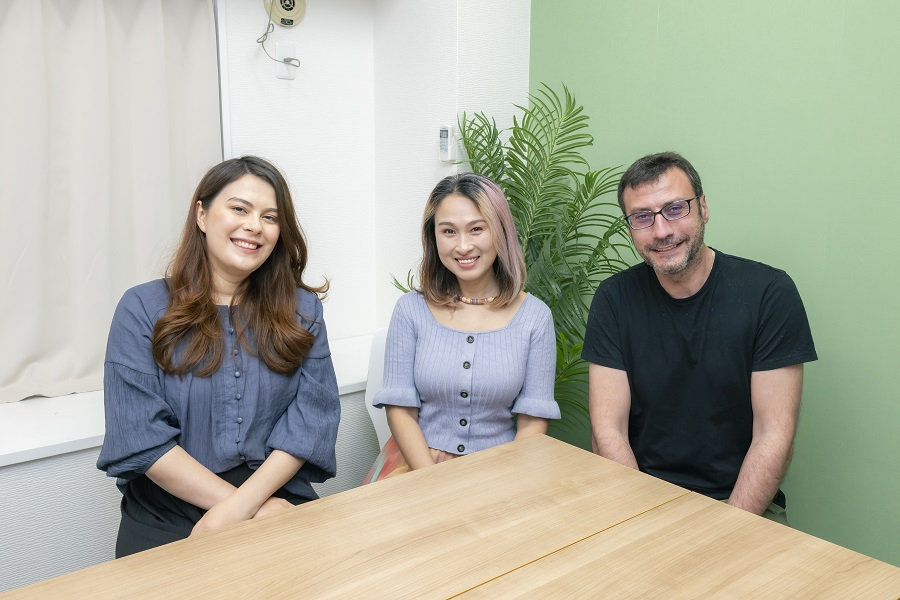
I started playing the gadulka when I was 7 years old because a child in my class was learning it and asked me if I wanted to go with them. Since then, I've grown to love the gadulka. I'd be happy if I could introduce folk instruments and other things through Bulgarian music. I get all sorts of feedback from people who are hearing Bulgarian music for the first time.
On YouTube, I write and talk about Japan in a straightforward way.
I also teach Thai one-on-one when I have the time. At the moment, I only have one student from Hong Kong, but I teach her Thai in Japanese. She likes Thai dramas, so I teach her slang rather than the words in the textbooks. I teach not only the language, but also Thai culture and cuisine. I also introduce Thai culture at the local community center and teach cooking to my mom-friends. I also teach people about Thailand in Japan. I often get comments saying that I have a fun way of teaching.
In my case, I think my role is to connect the children in my classroom to multicultural understanding, not only in relation to Brazil, where I have my roots, but also in relation to the countries where the children have their roots.
I give lessons to the children in my class where they can experience what it's like to be a child with foreign roots. I teach the class in Portuguese only. The aim is to help the children understand how difficult it can be for foreign children to come to Japan.
Another thing I always teach in class is the differences in rules and gestures in each country. I tell them that there are various gestures in other countries, because the cross-arm (X) and OK gestures are different in each country. The children also tell me that they didn't know that gestures were different, and that it was good to know.
Did you enjoy the second round-table discussion?
As you can see from the reactions of the families and people around these 3 participants, it's always nice to have someone from another country introduce you to their own country and culture. It's also fun to be able to connect with that country and culture through them.
It seems that there have been some gradual changes in their work and activities that connect Japan and their home country. In the next installment, we will talk about what lies ahead.
── Continued in the Following Issues
